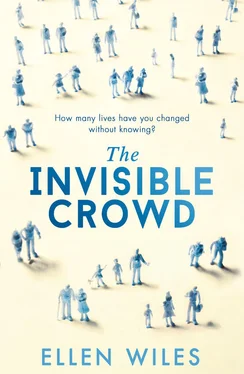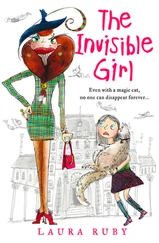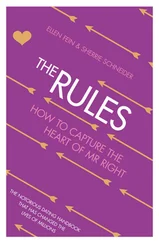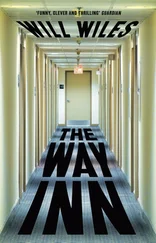Outside the station, a road heaved with revving cars and grand, grumbling red buses, black taxis as glossy as aubergines and intent cyclists with helmets on, zipping through tiny gaps. It was all so loud, so intense… Yonas felt the sharp edge between pleasurable anonymity and terrifying loneliness. But he had to focus on the task at hand: to source some coins and call Auntie. He wondered whether she lived far from here, what she would look like, what she would be like, whether she would be as smiling and maternal as he imagined, whether she would be able to offer him a floor to sleep on, even just for a few nights. Surely she would be generous enough for that – she’d known his mother well, according to Melat. But even Melat had never actually met this Auntie. She had just read out her number to him over that crackly line. He’d written it onto the back of his hand, repeated it aloud over and over, and then he and Gebre had spent the next few evenings testing each other on it.
He went up to a couple of people, asking them if they had a coin for him to make a local phone call, but they just shook their heads and said ‘sorry’, as if the thing they were really sorry about was that their walk had been interrupted. He gave up, and walked slowly around, scanning the ground for dropped change, wondering if he would have to ask somebody to borrow their mobile phone or sit down and cup his hands, until, behind a kiosk selling newspapers and sweets, he spotted a silver glint. He squatted down. It was a small, angular, silver coin – twenty pence! He brushed off the dirt, examined the image of the Queen, who looked surprisingly pretty and young, and then looked around for a phone box.
When he found one, he was so anxious to get the coin in the slot that it sprang out and bounced on the floor, nearly rolling out of the booth. He rescued it, put it in with more care, and dialled the number. Auntie, it is me, Yonas! I am here! How do I find you? A quiet stuttering on the line, as he waited for the ring, but instead there sounded three notes rising in pitch, then again, then again. ‘This number is not recognized,’ a curt woman’s voice informed him. He must have mistyped. He tried again, more carefully, concentrating on every button. The same three notes. ‘This number is not recognized…’ He let it repeat a few times, then dropped the receiver so it hung from its cable, groaned low and long, and sank down to his knees on the grubby floor. He closed his eyes for a few seconds, then opened them, and fixated on the abandoned Coke can and globs of old chewing gum stuck in the corner. Had he memorized Auntie’s number wrongly? Surely not – he’d checked, and repeated it, so many times. Had he written it down wrong? Again, impossible – the line was crackly, but he’d had Melat repeat it twice. So had she been given the wrong number? Or had Auntie left the place where she was living? He would have to ask Melat when he had enough money for a long-distance call. If only he had an address for Auntie. What was he supposed to do now?
He stood up, pocketed the coin, and looked out at all the people passing by, each intent on a mission to get from A to B, to meet friends, family, to do business. If only he had someone to seek out in London, just one face that would light up in recognition and welcome and congratulate him for making it. But he had to deal with the situation he was in. The sensible thing would be to focus on finding some random Eritreans who could help him find a foothold. He’d heard that a couple of old army friends from back home were in the UK, but he had no idea where, and he wasn’t sure he wanted to see them anyway. Amanuel, that distant cousin he’d met once, was supposed to be in Scotland…
Scanning the crowds for an approachable face, he spotted a woman who looked like she just might be Eritrean, with a curly cloud of black hair tied up. He remembered Melat styling hers just like that once.
‘Excuse me,’ he said, ‘can I ask where you are from?’
‘Er, London,’ the woman said, looking faintly disgusted.
‘Oh right. I thought—’
‘Sorry, I’m running late.’
Yonas leaned against a wall. If he did spot an Eritrean who had time to talk to him, would he actually want to join an Eritrean diaspora community? He would inevitably be drawn into ferocious debates about the President and the current situation, and he’d be expected to go to church, and they’d quiz him on his past and he’d have to churn up experiences he didn’t want to share, not yet, maybe not ever, if he was going to keep going and stay positive. What he really wanted was a fresh start in this city, to make new friends here, British friends, generous people like Bin Man Joe who liked singing along to Bob Dylan, who didn’t have a clue about Eritrea and didn’t even want to know what side he was on, who could help him reinvent himself and show him the best way to live well in the UK and feel like a native. But what would his strategy be for doing that, and for finding work and a place to sleep? He couldn’t just linger here. He decided to walk while he thought, absorb the scenery, and keep an eye open for opportunities. Something would occur to him.
He picked up his bag, then strode out along the street. Caught up in the flow of people, like a leaf coasting along the surface of a river, he felt a surge of excitement. He was finally here, in London – and he was free! Freer than he’d ever been, without any commitments, tasks or other people to be responsible for – except Melat and the family back home, of course. His feet were pressing on London’s pavements, his eyes feasting on London’s oversized office blocks and London’s shiny shops, his ears were filling with the vibrations of London’s traffic, his mouth and lungs saturated by London’s bitter air, and he was now one of the masses of London people, who were all so different, not just racially, but in how they dressed: he had expected reams of smart suits, but there was a woman with a purple coat and a rucksack covered in spikes, and there was an Asian girl with a red streak in her hair and a tattoo sprawling down her neck, and there was a man with a thick, black, rectangular beard and skintight jeans that made him look top-heavy.
He noticed that there seemed to be an unwritten agreement to avoid smiles, or any kind of eye contact with other pedestrians except when absolutely necessary. Was it just his stinky self? But no – even when people stepped aside to let others pass, he noticed, they never seemed to look at each other either. Probably because they were all in such a rush, which made sense in somewhere as busy as London; but he wondered if there was any street in this city comparable to Asmara’s tree-lined Independence Avenue, where people would just wander along slowly, hand in hand with friends, sit outside espresso bars, watch the world go by, exchange greetings.
He stopped short in front of large metal sign outside an office block that read:
theguardian
The Observer
Was this really the headquarters of the famous newspaper? How fortuitous that he’d just happened to walk past it! Was it a sign? He paused, and imagined himself dressed in a pristine suit with a crisp shirt, briefcase in hand, getting ready to walk into the building. I’ m here for an interview , he’d tell the receptionist assuredly. Yes, for the columnist job. A woman came out of the building, wearing jeans and a T-shirt, pulling her mobile phone out of her pocket, making a call as she passed him. Did she work in there, dressed like that? Was that normal here? What did he know? What would he ever know about the world of journalists in this city? Another woman came out, and gave him a long look – which prompted him to carry on walking. He couldn’t be caught loitering outside somewhere important like that. Realistically, he would probably never get to walk inside such an office except to clean it.
Читать дальше












